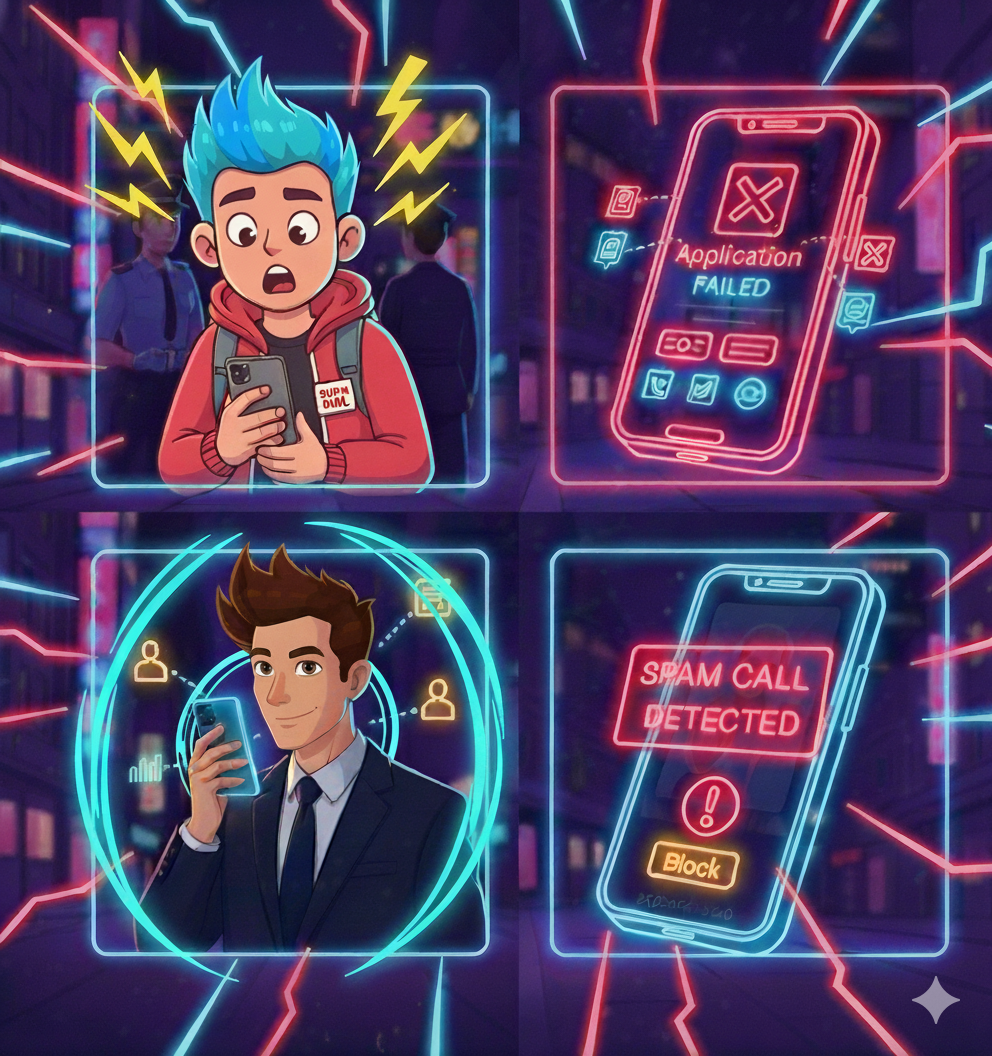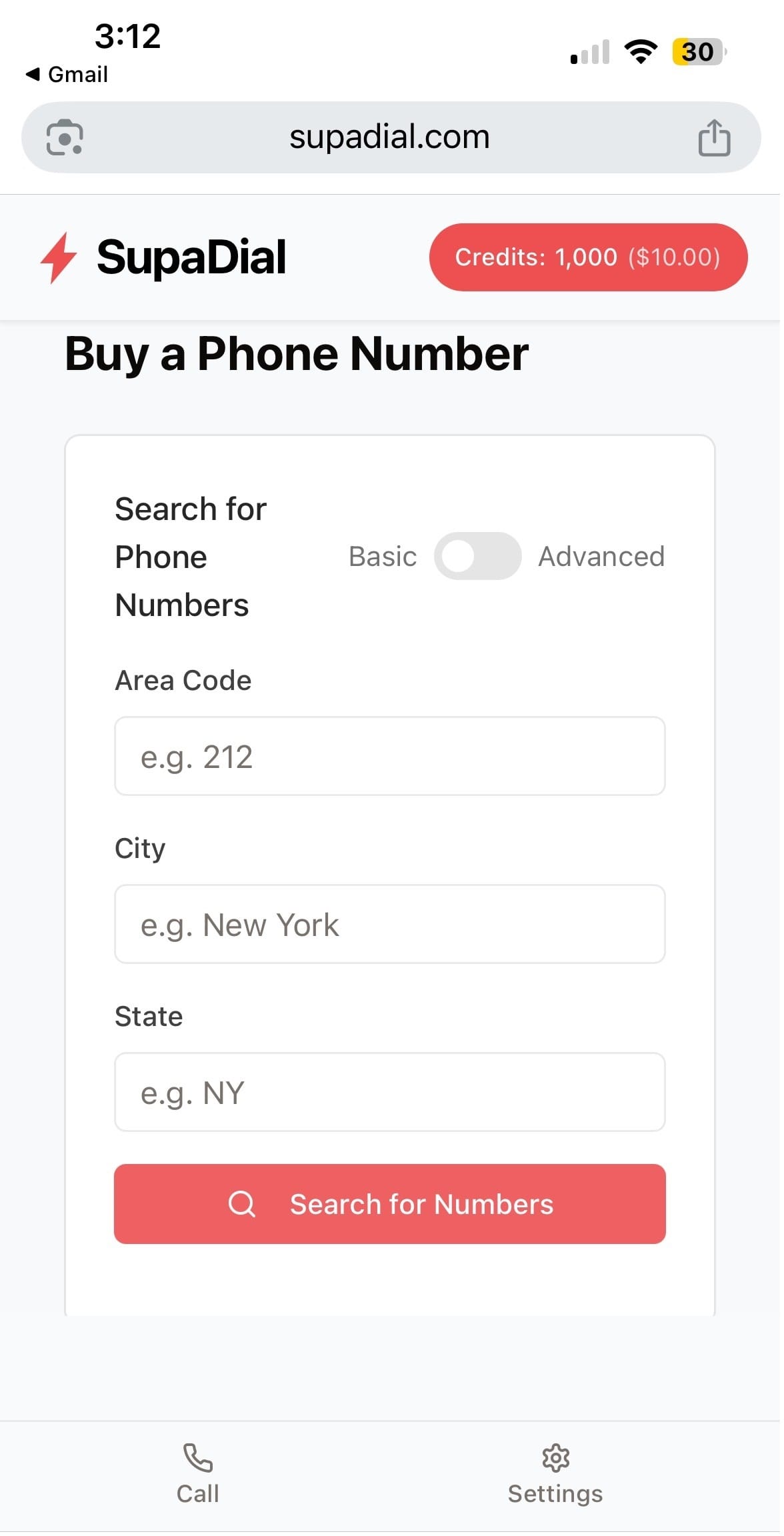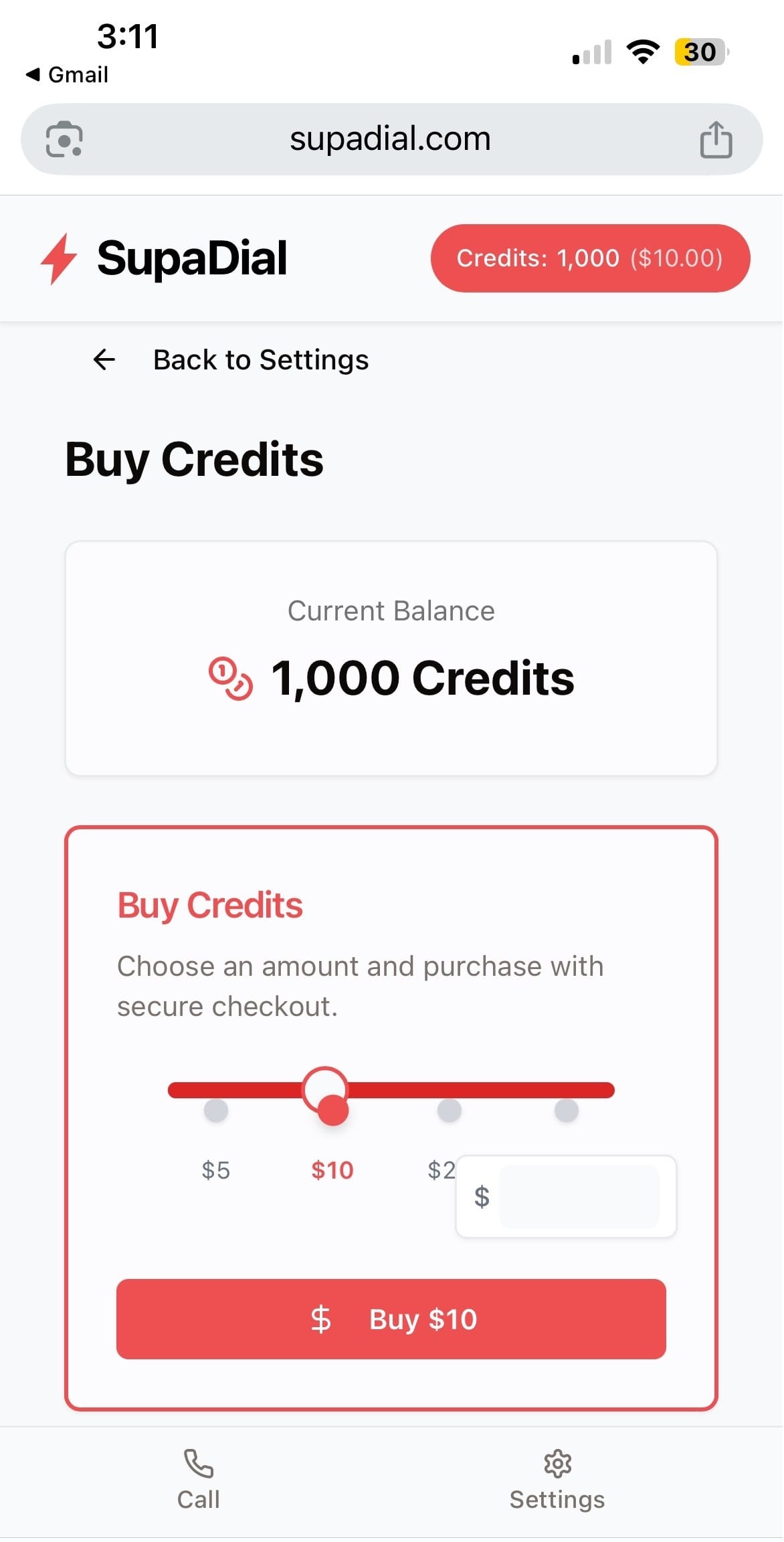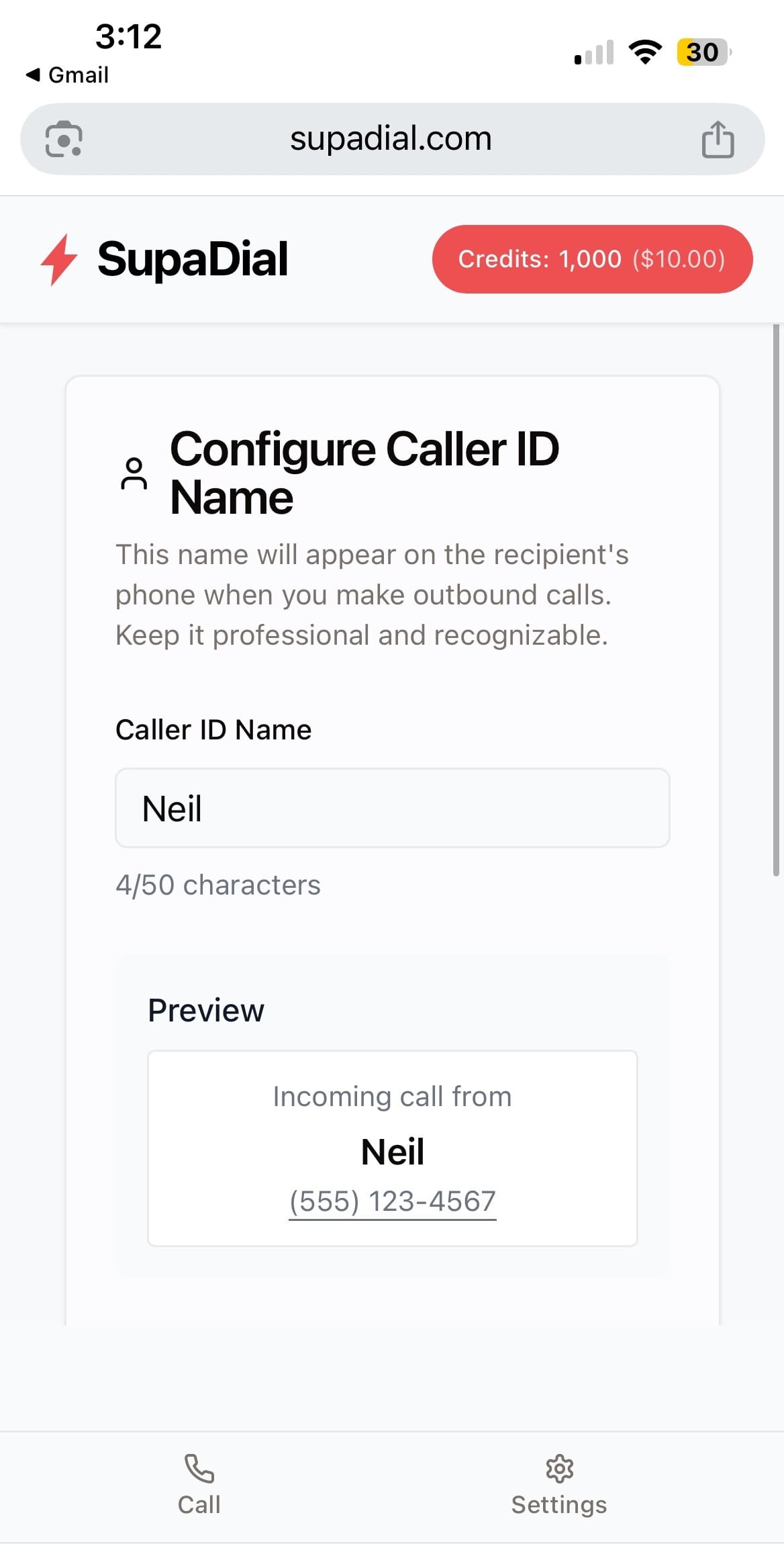Are Virtual Phone Numbers Legal in Your Country? Here’s the Guide
Laws around virtual phone numbers vary, but the confusion ends here. This global guide shows what’s legal, where, and how Supa Dial helps you stay on the right side.

Every country has its own take on what counts as “legal” when it comes to virtual phone numbers, and that can feel like you need a law degree just to make a call. One place treats them as perfectly normal, while another stacks on rules that make you second-guess hitting the dial button. The result? People are left asking the same question on forums, Reddit threads, and group chats worldwide: Is my number even allowed?
Supa Dial is here to cut through the noise, keep it simple, and give you the global map you’ve been searching for.
Why Everyone Freaks Out About “Legal” Phone Numbers
The question isn’t random. People across the world genuinely wonder if their virtual number is legal, because using the wrong one could mean blocked accounts, wasted money, or even fines.
Add in the internet’s endless mix of half-answers and outdated advice, and suddenly something as simple as making a call feels complicated. Here are the most common reasons people ask, broken down clearly.
Travel Headaches
Expats, digital nomads, and students abroad worry about whether their virtual number will actually be treated like a real one. Imagine landing in a new country, setting up your banking app, and then getting rejected because your number “doesn’t qualify.”
That stress follows people around, especially when they rely on a stable number to stay connected back home. Nobody wants to feel cut off just because they crossed a border.
Blocked Accounts
Apps and services are picky about the numbers they accept, and virtual ones can raise red flags. Users get anxious about signing up for social platforms, ride-share services, or even online banking, only to hit a wall when their number isn’t recognized.
It makes people feel like they’re holding a key that doesn’t fit the lock. That uncertainty drives a lot of “is this legal?” questions online.
Business Credibility
Freelancers and small business owners want to project trust and professionalism, but legality questions mess with that confidence. They wonder if clients will think twice about answering a call from a virtual number, or if regulators will frown on how they’re using it.
For people who depend on communication to close deals, even a hint of doubt can be damaging. That is why the legal angle matters so much in the business world.
Fear Of Penalties
Nobody wants a call flagged as spam, and the idea of fines or bans makes things worse. Stories about “illegal use” spread fast online, even if many are exaggerated or misunderstood.
Still, the fear sticks because who wants to risk losing their number, their contacts, or even their reputation? Asking about legality is often just people trying to avoid stepping into a trap they cannot see.

Common Legal Themes You’ll See Everywhere
Even though each country writes its own rules, some patterns show up again and again. Governments care about the same core issues: preventing spam, protecting consumers, and making sure phone systems aren’t abused.
Once you know these themes, the big scary question of “is my number legal” feels a lot less mysterious. Here’s what keeps popping up no matter where you are.
Registration Requirements
In many countries, virtual numbers need to be tied to a verified identity. That means you may be asked for a passport, driver’s license, or local ID before your number is activated. It helps governments know who is using the system and stops bad actors from hiding behind fake accounts. If your provider offers easy verification, you’re already on the safe side.
Usage Restrictions
Some regions limit what you can actually do with a virtual number. They might allow personal calls, customer service lines, or small business use, but block things like mass marketing or automated dialing. These rules are designed to keep everyday use normal while cutting down on spam. Knowing what is off-limits helps you avoid problems before they happen.
Caller ID Standards
A huge theme is making sure caller ID shows the correct information. Spoofing or hiding your identity is where most people get into trouble. Regulators want callers to look authentic so people trust the numbers that show up on their screen. Following caller ID rules keeps you compliant and helps your calls actually get answered.
Data And Privacy
Countries are becoming stricter about how call data is stored and shared. Virtual numbers often fall under the same privacy rules as mobile carriers, which means customer info has to be handled carefully. This is especially true in places with strong data laws like the EU. A good provider will keep your details safe and aligned with local regulations.
Where Virtual Numbers Are Legal (and Where They’re Risky)
Virtual numbers live in a world of “maybe yes, maybe no,” depending on where your calls want to go. Below is a map of how laws tend to land.
Countries With Clear Virtual Number Laws
In places like the United States, the United Kingdom, Canada, and Australia, virtual numbers are legal as long as you follow key rules (like caller ID requirements and anti-spam laws). These jurisdictions already have mature telecom frameworks that define which behaviors are allowed and which aren’t. Business owners, freelancers, and individuals can generally operate with confidence.
- In the U.S., the Truth in Caller ID Act forbids transmitting misleading or inaccurate caller ID info with intent to defraud, harm, or wrongfully obtain value.(Federal Communications Commission)
- Canada has cross-agreements with the U.S. to clamp down on automated calls and false caller ID (FCC & CRTC cooperation).
- The U.K. and Australia also enforce compliance via telecom regulators (Ofcom, ACMA), focusing on spam rules, identity verification, and lawful caller notation.
If you want the full lowdown for these, check out: Are Virtual Phone Numbers Legal in the US / UK / Canada / Australia.
Countries With Stricter or Unique Rules
Some countries allow virtual numbers, but with tighter oversight or odd constraints.
- India: Virtual numbers and VoIP are not outright illegal, but you’ll hit walls. For instance, the Telecom Regulatory Authority of India (TRAI) has “Quality of Service” rules around international VoIP, and DoT insists companies don’t bypass PSTN (public switched telephone network) links illegally. (Telecom Regulatory Authority of India)
- India also passed the Telecommunications Act, 2023 to replace older laws, giving regulators more power over telecommunication services.
- Recent amendments require that any noncompliant telecom application may face action under telecom law. (Telecom Regulatory Authority of India)
- China, the United Arab Emirates, Singapore, and some GCC nations: virtual / VoIP numbers often face licensing, mandatory local partnerships, or outright restrictions in certain use cases (e.g. running business numbers, mass call systems).
Countries With Developing or Ambiguous Laws
Many nations in Africa, Latin America, and parts of Southeast Asia still haven’t fully codified how virtual numbers fit into telecom law. That means things can shift fast, and enforcement can be uneven.
- In these places, your safest bet is choosing a provider that watches local regulation changes and adapts quickly.
- When laws are ambiguous, your risk is higher: calls might be blocked, regulatory scrutiny may appear, or local carriers may refuse to interconnect.
How Supa Dial Keeps You On The Safe Side
Virtual numbers only work when they follow the rules. Supa Dial is built with compliance in mind so you can call, connect, and grow without stress. We designed our features to match what regulators expect while keeping things simple for you. Here’s how we make sure your number stays safe and useful.
Local Presence Numbers
We provide numbers that are built for real communication, not shady shortcuts. Whether you’re freelancing, studying abroad, or calling home as an expat, your number is recognized as valid and compliant. It is like having the right ID at the door, letting you through without delays. You get to focus on conversations, not on regulations.

Pay As You Go Credits
Our system runs on credits so you always know what you are paying for. No sneaky fees, no inflated charges that regulators dislike. You top up, you spend, and you see it clearly. This transparency keeps you safe and keeps your budget in your control.

Caller ID Control
Your caller ID shows correctly every time, which is exactly what compliance requires. No tricks, no fake displays, just a clean identity that builds trust with the person picking up. This matters because caller ID is one of the most heavily policed areas in telecom. With Supa Dial, you look professional and stay legal.

Clear Boundaries
Supa Dial is made for people, not spammers. That means no bulk robocalls, no shady telemarketing, and no tricks that could get your account banned. We set boundaries so your number stays active, safe, and respected. You get freedom without the risks.
What’s Next For Supa Dial
Supa Dial already makes getting a local or international number fast and hassle-free, but this is just the beginning. We’re on a mission to make digital communication smarter, cleaner, and more personal for users around the world. No matter where you live or work, here’s what’s coming next for Supa Dial.
Texting And SMS
Calls aren’t always enough. That’s why we’re adding texting and SMS support, so you can message clients, confirm deliveries, or handle updates all in one place.
Whether you’re a business owner in London, a freelancer in Manila, or a traveler in Sydney, your Supa Dial number will soon be more than a call line — it will be your all-in-one connection tool.
AI Call Summaries
Remembering every conversation detail shouldn’t require scrolling through notebooks or apps. Supa Dial’s AI summaries will capture the highlights of each call automatically, helping you follow up with clarity and confidence. It’s your personal notetaker that works in the background while you focus on what’s next.
Smart Tools For Global Users
We’re building features that adapt to how people actually work and communicate today. From organizing calls to managing notes and contact lists, Supa Dial is becoming the personal command center for your digital life. Fewer tabs, fewer steps, more flow — all powered by one number that works everywhere.
The Real Answer
So, are virtual phone numbers legal? In most countries, yes, although each one has its own flavor of rules that can feel like a global obstacle course. The secret is staying within the boundaries so your calls connect, your number does not get flagged, and your business keeps looking polished.
Supa Dial takes care of compliance behind the scenes so you can focus on dialing, hustling, and keeping life in motion. The next time you find yourself asking: Are virtual phone numbers legal, remember the answer is yes when you are with Supa Dial.
Frequently Asked Questions
People everywhere search for the same thing in different words: are virtual phone numbers legal, and how can I use one without worry? To cut through the noise, here are five clear answers to the most common concerns.
Are virtual phone numbers legal for personal use?
Yes, most countries allow personal use without issues. People use them to talk to family, manage online accounts, and stay connected when traveling. The laws are meant to stop fraud, not everyday calls. If you are just keeping in touch, your virtual number is safe.
Are virtual phone numbers legal for business?
Yes, businesses worldwide use them to separate work calls, look professional, and expand into new markets. The key is following caller ID rules and avoiding bulk spam calls. Regulators want transparency, not to block small businesses. Supa Dial ensures your business line stays compliant and credible.
Are virtual phone numbers legal for banking and apps?
Legally, yes, but some apps and banks block numbers they see as unverified. The issue is less about the law and more about whether the provider is trusted. Using a recognized provider makes all the difference. Supa Dial gives you numbers that apps and services are far more likely to accept.
Are virtual phone numbers legal when traveling abroad?
Yes, and that is exactly why so many expats and nomads use them. Having one number that works everywhere saves you stress and money. As long as your identity is verified and your provider respects local rules, you are fine. Supa Dial keeps your number active across borders so you never miss a call.
Are virtual phone numbers legal if used for marketing?
It depends on the country and the type of marketing. Robocalls and mass unsolicited campaigns usually cross the line. But using a virtual number for customer service, opt-in marketing, or client communication is legal. Supa Dial makes sure your use stays clean and within the rules.
